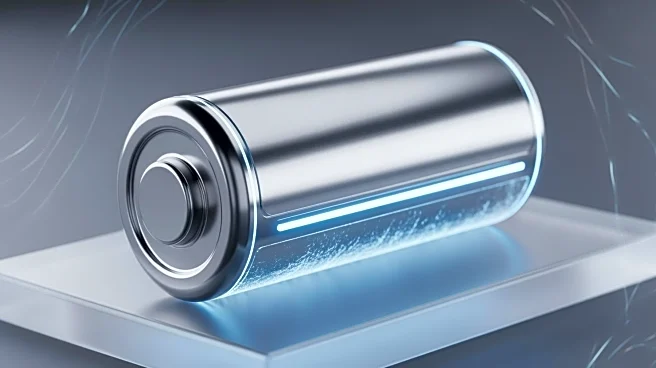What's Happening?
A new solid-state battery developed by a major Chinese automaker is set to enter mass production in 2026. This battery retains 72% of its capacity in extreme cold conditions, significantly outperforming
traditional lithium batteries. With an energy density of 350 Wh/kg, the battery offers a range of 1,000 km on China's CLTC cycle, equivalent to over 400 miles in the U.S. The battery's stability and cost-effectiveness make it a viable option for electric vehicles, particularly in cold climates.
Why It's Important?
The development of solid-state batteries marks a significant advancement in electric vehicle technology. These batteries offer higher energy density, improved safety, and better performance in extreme temperatures compared to traditional lithium-ion batteries. The ability to retain capacity in cold conditions is particularly beneficial for EVs in colder regions, enhancing their reliability and appeal. As the automotive industry shifts towards electrification, solid-state batteries could play a crucial role in extending vehicle range and reducing charging times.
What's Next?
The mass production of this solid-state battery is expected to begin in 2026, with further advancements in fast-charging capabilities and energy density anticipated. The automaker is also working on a version that can utilize 2 MW chargers and achieve a theoretical energy density of 500 Wh/kg. As other major players like CATL, Samsung, and Toyota also develop solid-state batteries, the competition could drive further innovations and improvements in EV technology, potentially leading to widespread adoption and a shift in the automotive market.











